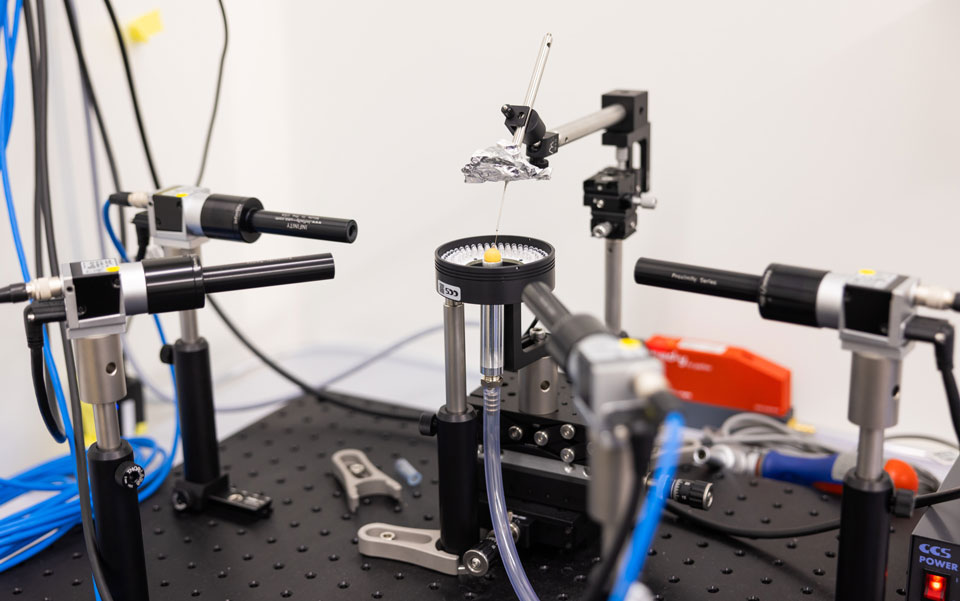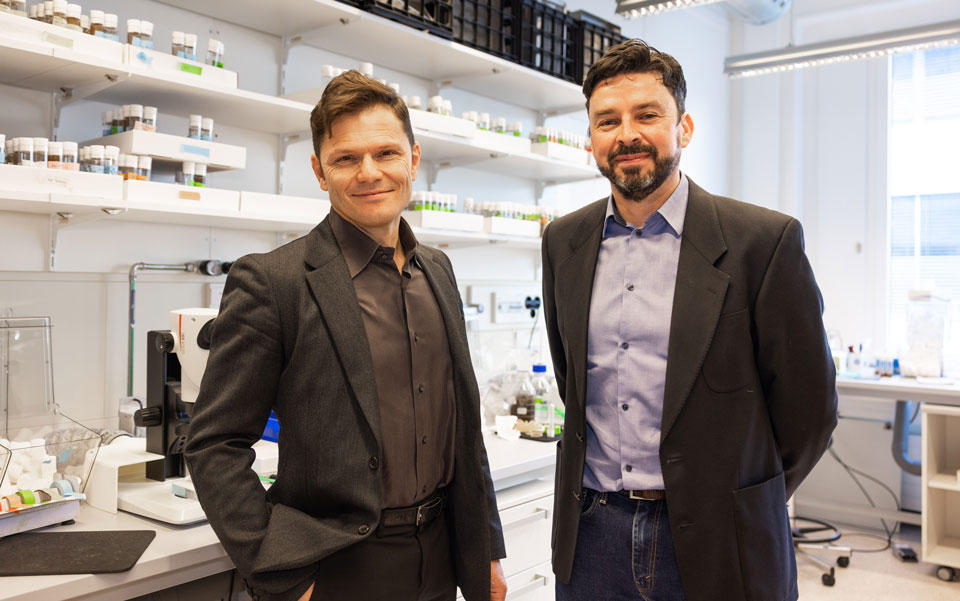Using gene therapy to address amyotrophic lateral sclerosis. That is the ambitious project currently being conducted by Avrion Therapeutics AG and the Laboratory for Neural Genetics and Disease at EPFL, supported by Innosuisse. Promising research is currently underway using a combination of technologies, including genome engineering and artificial intelligence, beginning with a model organism, the fruit fly Drosophila. The work could lead to the development of novel treatments for this incurable disease.
Amyotrophic lateral sclerosis (ALS) or motor neuron disease (MND) is a neurodegenerative disease that leads to complete paralysis and death of patients within 2 to 5 years. There is currently no cure for ALS. According to the ALS Association of Switzerland, some 400,000 people worldwide are affected by ALS, and approximately 100,000 die from it each year. In Switzerland, 500 to 600 people are currently suffering from ALS.
ALS is caused by the progressive malfunction and death of motoneurons, the nervous system cells that direct and control muscles. Avrion Therapeutics AG and EPFL are using gene therapy to try to correct the genetic defects affecting these cells.
The promising effects of gene therapy
“Without motoneurons, you can’t move, speak or even breathe,” says Brian McCabe, Professor in the EPFL Brain Mind Institute and Director of the Laboratory for Neural Genetics and Disease. In his opinion, the use of gene therapy could make it possible to correct genetic defects affecting motoneurons and thus treat at least some forms of the disease. “We have developed technologies that allows us to replace genes in a small animal model, the fruit fly Drosophila, with human genes including defective human genes associated with ALS. Drosophila has the advantage of being genetically similar to humans but is an animal model that allows high-throughput experimental assays.”
The results so far are promising. Brian McCabe’s team has identified two novel genetic “targets” that, when manipulated, significantly improve the lifespan and locomotion of ALS model Drosophila. They are hopeful understanding these targets could produce a breakthrough in understanding the disease and enable new treatments using gene therapy. “Gene therapy offers the opportunity to rapidly move from discoveries made in animal models to treatments that could be evaluated in patients. The technology has the potential advantages of being faster to develop and may produce fewer side effects than conventional drugs. A single gene therapy treatment normally brings long-term benefits,” says Brian McCabe.

Moving from research to treatment with Innosuisse
Maximilien Murone, CEO of Avrion Therapeutics AG, is optimistic that the technology will succeed. “Innosuisse allows us to bridge the gap between basic research and advanced pre-clinical validation.” The results obtained in the Drosophila studies must now be tested in rodents and then validated in human tissue from ALS patients. “We hope that achieving these goals will allow us to bring one or more new gene therapies to clinical development and ultimately treat ALS patients.”
Last modification 27.06.2022






